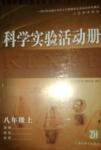题目内容
We students had better ______ some sports because sports can give us a perfect figure and protect us from getting illness easily.
A. take up B. make up
C. pick up D. build up
A
【解析】
试题分析:考查动词短语 句意上,我们学生最好能做一些体育项目因为体育不仅可以让我们有一个好的形体也可以让我们免于疾病。A项表示“拿起,占据(时间、空间),从事”;B项是“弥补,化妆,编造,组成”之意;C项是“捡起,接受信号,搭便车,偶然学会,身体等状况恢复”之意,此处A项适合。
考点:考查动词短语

练习册系列答案
 科学实验活动册系列答案
科学实验活动册系列答案
相关题目